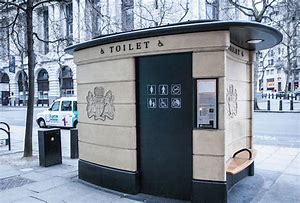The Non-Domestic Rating (Public Lavatories) Bill implements a commitment made by the Chancellor of the Exchequer in the Autumn Budget 2018 to give public lavatories 100% relief from non-domestic rates. When the Chancellor announced this, it gave rise to some of the most cringe-worthy puns ever heard in the House of Commons – the Chancellor announcing that he was “bursting” to tell the house about his plans for rates relief. Well, somebody in government still has a sense of humour, because the bill does not exempt public lavatories from non-domestic rates, but it does give them 100% “relief”.
The effect of the Bill is to provide that the rates liability for any hereditament that consists “wholly or mainly of public lavatories” shall be zero. This provision will apply in both England and Wales. The zero liability calculation will apply only to hereditaments that consist wholly or mainly of public lavatories, so it will not, for example, apply to public lavatories in a public library, nor to publicly accessible lavatories in other hereditaments such as hotels or restaurants.
It has always been regarded as something of an oddity that, for example, sewers are exempt from non-domestic rates, but public lavatories are not. The rates relief is a sensible one given that many public lavatories are the run by local authorities and local authority budgets are under significant pressure. However, one of the defining characteristics of recent rates reliefs has been that any new relief is almost immediately followed by a rush of ratepayers seeking to take advantage of it. We do wonder whether we will now see ratepayers whose properties have lavatories that are accessible to the public now seeking to create a separate hereditament consisting of those lavatories, in order to benefit from the relief. The really sharp-eyed amongst those ratepayers may then seek a reduction in the value of the remaining part of their property, on the basis that it has no toilets!
There is a serious point behind all this, which is that the Government has, for some years now, applied ad hoc rates reliefs to properties where it believes that non-domestic rates have become unduly burdensome and some of these reliefs have been taken advantage of in unexpected ways. We very much hope that the Treasury Select Committee, which is currently reviewing government policy on business rates, will look at ways of reducing the burden of rates liability so as to mean that such sticking plaster policies are no longer necessary.

